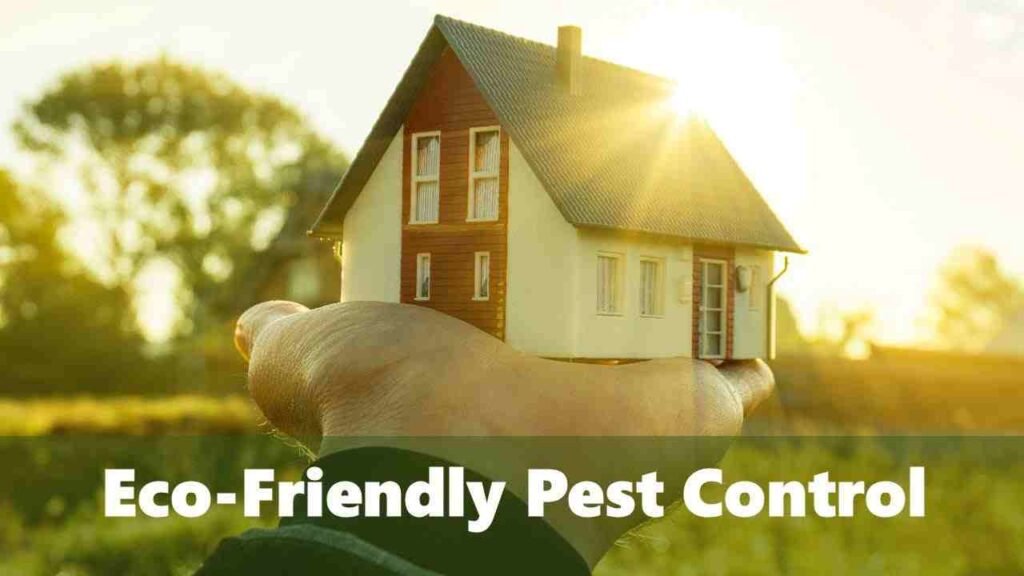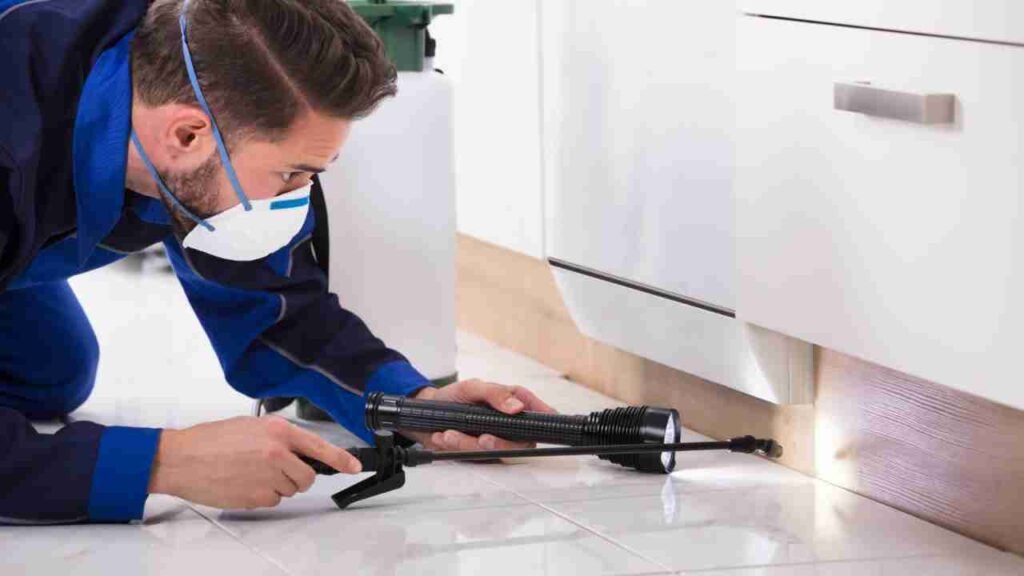Welcome to the fascinating realm where the battle against pests intersects with the principles of sustainable living. In our homes, gardens, and communities, residential pest control services take on a new dimension as we strive to harmonize effective management with eco-friendly practices. This journey explores how sustainable living principles intertwine with pest control strategies, emphasizing the importance of minimizing environmental impact. From natural deterrents to integrated pest management, we’ll delve into methods that not only combat unwanted invaders but also contribute to a healthier planet with Complete Bed Bug Exterminating NYC.

And for businesses, commercial pest control services play a crucial role in navigating this intersection, ensuring effective pest management while adhering to sustainable practices. Join us as we explore how pest control can become a sustainable ally in commercial settings, creating a balance where the well-being of businesses and the environment coexists seamlessly.
Embarking on eco-friendly approaches to home pest control involves adopting methods that prioritize the health of the environment. When identifying signs of pest infestations, utilizing organic repellents and implementing preventive measures become crucial. Homeowners can embrace sustainable practices that effectively manage pests while minimizing harm to the ecosystem. This section explores a range of eco-conscious strategies that redefine the conventional methods of pest control, offering a greener alternative for homes.
Natural deterrents play a pivotal role in sustainable living, especially when it comes to pest control. Understanding why regular pest inspections are crucial, delve into the realm of plant-based repellents, essential oils, and other non-toxic solutions that not only ward off pests but also align with eco-friendly principles. Discover how these natural deterrents contribute to a sustainable lifestyle, creating a balance between effective pest management and environmental preservation.

Integrated Pest Management (IPM) stands as a holistic approach to pest control that emphasizes prevention, monitoring, and eco-friendly solutions. Explore the principles of IPM, which involve understanding pest behavior, employing natural predators, and utilizing targeted interventions. This comprehensive strategy ensures effective pest control while minimizing the need for harsh chemicals, making it a sustainable choice for homes and communities.
Minimizing environmental impact in pest control is a vital consideration as we strive for sustainable living. Examine the potential ecological consequences of traditional pest control methods and explore alternative approaches that prioritize environmental health. By choosing methods with minimal impact, we contribute to a healthier planet while effectively managing pest issues.
Residential pest management can be transformed into a sustainable practice by adopting eco-friendly methods. From choosing green products to implementing preventative measures, homeowners can contribute to environmental conservation while keeping their homes pest-free. Explore sustainable practices that redefine the way we approach residential pest management, creating a balance between effective solutions and ecological responsibility.
Green gardens thrive with eco-friendly pest solutions that maintain the delicate balance of the ecosystem. Explore methods such as companion planting, organic fertilizers, and natural pest repellents that enhance the health of your garden without compromising the environment. Learn how sustainable gardening practices can effectively manage pests while contributing to the overall well-being of the natural world.
Addressing pest control as a community involves adopting shared responsibilities for sustainable practices. Explore how neighborhoods can collaborate in implementing eco-friendly pest management strategies, creating a collective effort to minimize environmental impact. This section emphasizes the importance of community involvement in fostering sustainable living and responsible pest control.

Businesses play a crucial role in embracing sustainability in pest control, recognizing the impact of their practices on the environment. Explore how businesses can adopt green pest control strategies, incorporating eco-friendly products and practices. From minimizing chemical usage to considering the life cycle of products, this section delves into the role of businesses in promoting sustainable pest management.
Commercial pest services contribute to sustainable practices by balancing effectiveness and ecology. Explore how these services can implement eco-friendly solutions without compromising on the successful management of pests in commercial settings. This section emphasizes the importance of finding a harmonious balance between pest control measures and ecological responsibility for businesses.
Implementing holistic pest management in urban environments involves considering the unique challenges of city living. Explore sustainable approaches that address pest issues in urban settings, from green spaces to residential areas. Discover how a holistic perspective can create pest-resistant urban environments that prioritize both human well-being and the health of the ecosystem.
Fostering sustainable pest control practices requires education and awareness. Explore initiatives aimed at educating individuals, communities, and businesses about eco-friendly pest management. From workshops to outreach programs, this section highlights the importance of spreading knowledge and fostering a collective commitment to sustainable pest control practices for a healthier planet.
In conclusion, the intersection of pest control and sustainable living presents an inspiring journey towards harmony with our environment. From eco-friendly approaches in homes to integrated pest management principles, this exploration has uncovered practices that redefine pest control, emphasizing sustainability. By minimizing environmental impact, embracing natural deterrents, and fostering community involvement, we forge a path towards a healthier planet. The role of businesses, particularly commercial pest services, is pivotal in striking a balance between effectiveness and ecological responsibility. Whether in residential spaces or urban environments, adopting holistic and sustainable pest management practices becomes imperative. Educational initiatives play a crucial role in disseminating knowledge and fostering a collective commitment to practices that prioritize the well-being of our homes and the broader ecosystem. Together, we can create a future where effective pest control coexists seamlessly with a commitment to environmental preservation.
How do eco-friendly pest control methods benefit the environment?
Eco-friendly methods minimize the use of harmful chemicals, reducing environmental impact and promoting a healthier ecosystem.
2. What is Integrated Pest Management (IPM), and how does it contribute to sustainability?
IPM is a holistic approach focusing on prevention and eco-friendly solutions, minimizing the need for harsh chemicals and promoting long-term sustainability.
3. Can sustainable pest control practices be applied in commercial settings?
Yes, businesses can adopt eco-friendly pest control strategies, balancing effectiveness with ecological responsibility for a sustainable approach.
4. How do community-based pest control efforts contribute to sustainability?
Community involvement promotes shared responsibilities, creating a collective effort to minimize environmental impact and foster sustainable living.
5. What role do educational initiatives play in sustainable pest control?
Educational programs raise awareness about eco-friendly practices, fostering a collective commitment to sustainable pest control for a healthier planet.